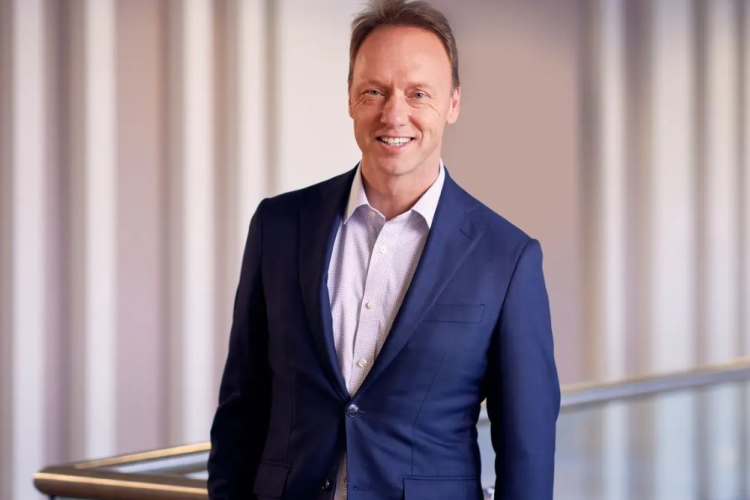Who is Unilever’s new CEO and is split and spin back on the table?

Unilever has announced the appointment of a new chief executive: Hein Schumacher.
Schumacher will replace outgoing CEO Alan Jope, who announced his intention to retire from Unilever in September last year. He will join the ice cream-to-condiments maker in July after a one-month handover period working alongside Jope.
Who is Hein?
Unilever Chairman Nils Andersen said the appointment was made after an ‘extensive global search process’. Schumacher became a non-executive director of Unilever in October last year and he comes to the executive team from Royal FrieslandCampina, a Dutch dairy cooperative with a turnover in the region of €11bn annually and operations in over 40 countries.
During his tenure at FrieslandCampina, which commenced in 2014, Schumacher served first as CFO then as CEO. Prior to this, he worked for H.J. Heinz for over a decade – during a time of ‘significant change at the company’. In 2008 he was appointed Chief Strategy Officer, before moving to China in 2011 as its President and CEO. In 2013, he was appointed Executive Vice President of Kraft Heinz’s Asia Pacific Zone and led a successful turnaround of the business, which spanned China, Indonesia, India, Japan and Oceania.
Experience of organisational change is one of the attributes Unilever’s Andersen was keen to emphasise as he welcomed the business' new chief executive. “Hein is a dynamic, values-driven business leader who has a diverse background of experiences and an excellent track record of delivery in the global consumer goods industry. He has exceptional strategic capabilities, proven operational effectiveness, and strong experience in both developed and developing markets," the Chairman noted.
This penchant for overseeing business transformation can also be detected in the departing words from FrieslandCampina’s Chairman to his exiting CEO. “Hein successfully guided FrieslandCampina through an important transformative period for the company,” Sybren Attema reflected. “In often very challenging circumstances, he led the company fully focused on making a sustainable, future proof FrieslandCampina. It is with regret that we see him leave, and we wish him all the best in his new position.”
Delivering a ‘step-up’ in performance
Unilever’s Chairman said he believes that this experience shows Schumacher has what it takes to ramp up Unilever’s performance, which has attracted criticism from shareholders. “The Board looks forward to Hein realising the full potential of Unilever as a winning business which delivers long-term growth and value for all its stakeholders,” Andersen stressed.
This ambition was echoed by Schumacher himself. Unilever is a business with ‘an impressive global footprint’, a ‘strong brand portfolio’, a ‘talented team’ and an ‘enviable reputation’ as a leader in sustainability, he said possibly giving a nod to unwillingness to backdown from the sustainability investments for which the UK-headquartered multinational has come under shareholder fire.
“In my time serving on the Board, I have only become more convinced by the strength of Unilever’s fundamentals and its clear growth potential. I will be very focused on working with the Unilever team to deliver a step-up in business performance," Schumacher noted.
What could a strategy to deliver a ‘step-up’ in performance look like? Almost undoubtedly, industry watchers will circle back around to the perennial question of whether the company should separate its food and nutrition brands from its home and personal care portfolio.
To spin or not to spin, that is the question
This issue is one that persistently dogs Unilever’s management team, with many a shareholder eyeing the lucrative pay out they believe would be unlocked by the spin-off or sale of Unilever’s food brands, which include the likes of Knorr, Hellmann’s and Magnum.
Unilever probably came closest to settling what has been a decades long debate in 2022 when it was thwarted in its discussions to take control of the healthcare division of GSK. At the time, Unilever described the GSK business as a ‘strong strategic fit’ that would expand footprint in health, beauty and hygiene. These categories offer ‘higher rates of sustainable market growth’ and ‘significant opportunities to drive growth through investment and innovation, and by leveraging Unilever’s strong presence in emerging markets’, the company said. The deal would have been funded through the disposal – or potential IPO – of Unilever’s food businesses. But it was not to be – and after GSK rejected Unilever’s approach, the company insisted it remains committed to growing in food and initiated a restricting process that saw it reorganised into five operating units: beauty & wellbeing, personal care, home care, nutrition, and ice cream.
These changes to ‘strategy, structure and organisation leave Unilever far better positioned for success’, Andersen said today. Nevertheless, they have failed to put questions over the future of the food and nutrition units to rest. Indeed, when activist investor Nelson Peltz (who is credited as the mastermind of a failed takeover bid for Unilever by Kraft Heinz in 2017) was appointed to the Unilever Board last summer, the rumour mill was again turbo-charged by the idea that portfolio adjustment could be back on the cards.
Pundits believe separating food from home and personal care could set Unilever on a higher growth trajectory. “[Unilever’s] growth challenge is not about investment, it is about the structure of the portfolio and the weighting to what we regard as lower growth, lower quality, foods businesses,” reflected Jefferies analyst Martin Deboo.
Jefferies estimates that, were Unilever to split foods and home & personal care, the move would 'unleash focus and unlock value' and is 'capable of unlocking value north of 5000p'. Valuing HPC at Colgate's multiple of 17.4x EBITDA and foods at 11x earnings, less €10bn costs to separate, points to fair value of 5290p 'with any performance improvement as a result of enhanced focus an upside to that' they argue.
But while commentary from the company has emphasised his change-management experience, could Schumacher’s strong background in nutrition and CPG actually point in the opposite direction and a fresh focus on food?



















